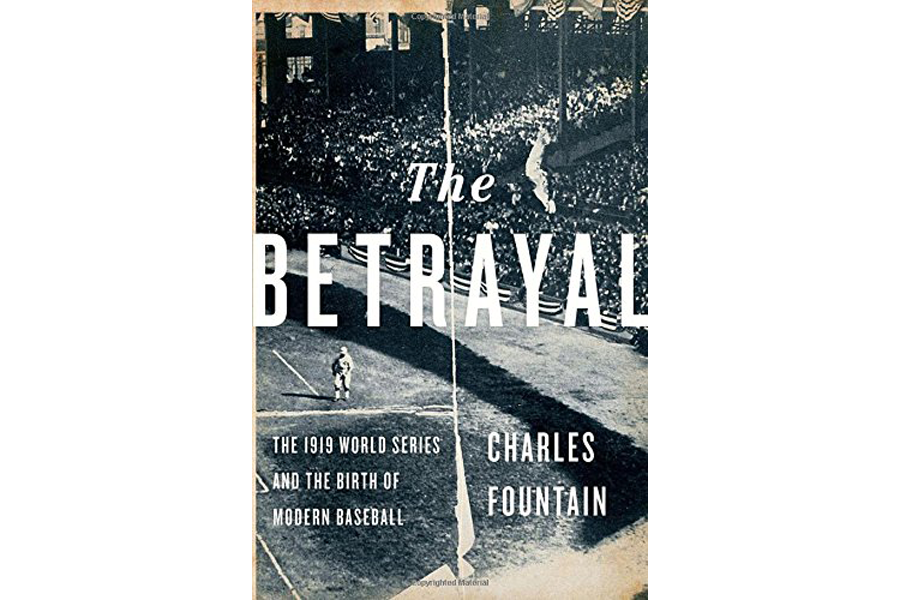Professional baseball during its early years was a magnet for gamblers and game fixers, according to “The Betrayal.” Author Charles Fountain writes that “gambling and throwing games were as much a part of early baseball as spitballs, bunts, and doubleheaders.” This sleazy affiliation led to the 1919 World Series scandal that so shook the sport’s integrity that baseball introduced its first commissioner to clean up the mess. Fountain takes a fresh look at the events surrounding the scandal, when eight Chicago White Sox players, including “Shoeless” Joe Jackson, were accused of throwing the World Series to the Cincinnati Reds. Even though the players were acquitted in court, baseball’s new commissioner, Judge Kenesaw Mountain Landis, banished the accused players for life.
Here’s an excerpt from The Betrayal:
“With the Series over, Joe Jackson determined that he would unburden himself of the weight of his shame and the $5,000 in fifties and hundreds that he was still carrying around in the envelope in which he had received it. Set to leave for Savannah that evening – having cleaned out his locker the morning after the final Series game – he went to the White Sox offices and asked to see Charles Comiskey. Harry Grabiner turned him away. Grabiner and Comiskey suspected what Jackson wanted to tell them , and they weren't ready to hear it. With the Series lost and the damage already done, the only way this was now going to turn out well for the White Sox was if it stayed in the shadows, at least until Comiskey could determine what he wanted to do. Jackson’s need for catharsis was not welcome at this early moment.”







